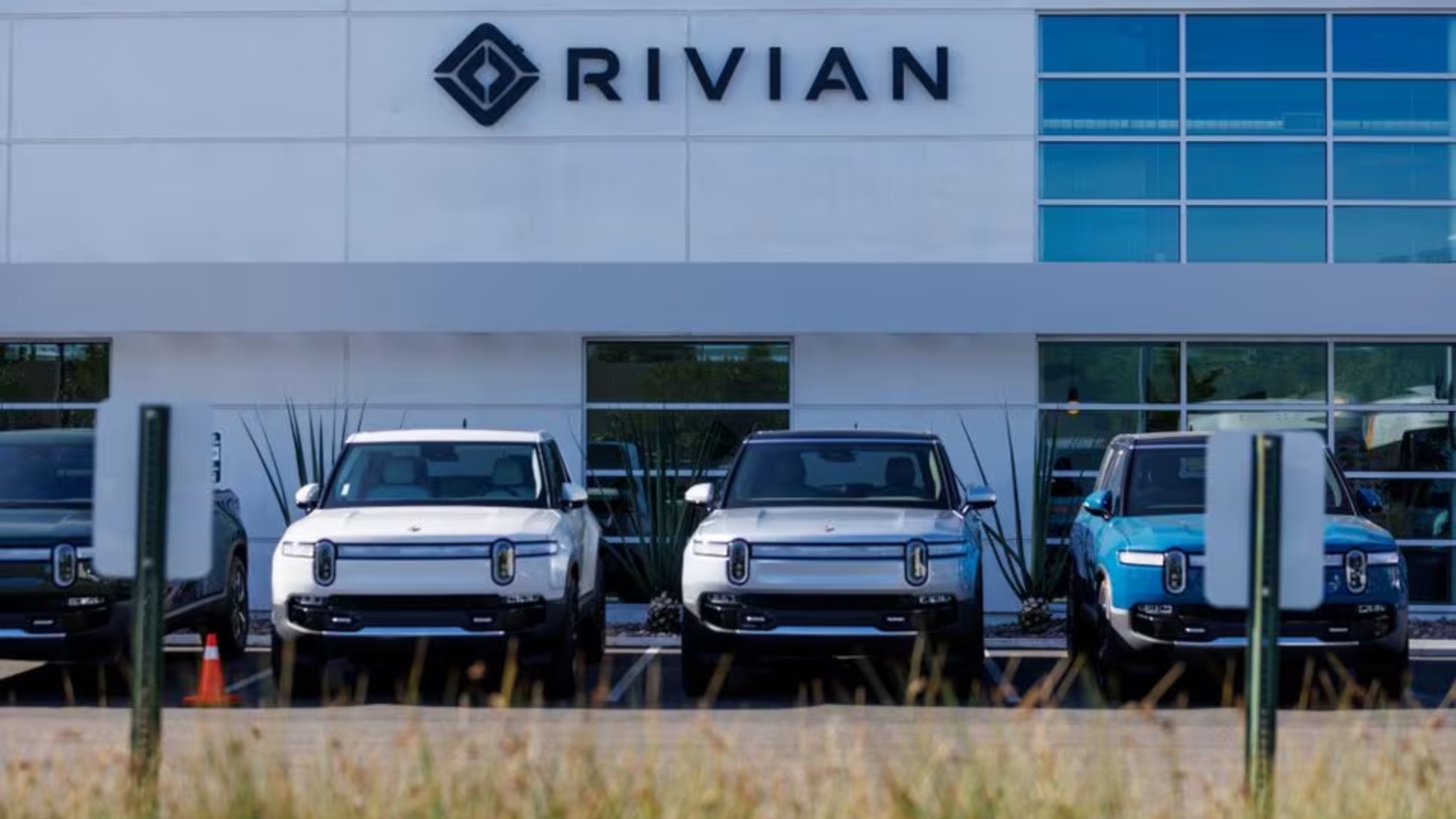Summary
- EV maker expects Q3 deliveries to dip sequentially
- Sees cost reduction of factory upgrades in second half of 2024
(Reuters) – Rivian on Tuesday stuck to its forecast that production would not rise this year and said deliveries in the third quarter would be slightly lower, as the EV maker races to rebuild inventory after a factory shutdown in April designed to cut costs.
Shares of the company, which also said it would halt production for over a month next year as it prepares to launch a smaller vehicle in 2026, fell nearly 6% in volatile trading after the bell.
Rivian, which makes the R1S SUV and R1T pickups, is seen as one of the few electric vehicle makers with potential to navigate a sharp slowdown in EV demand. But a drastic reduction in cost and the rollout of its more affordable SUV are seen crucial to its success.
With the three-week factory retooling, Rivian introduced a new generation of its R1 vehicles with advanced features and a simpler manufacturing process and introduced offers on leases to boost sales of the older-generation vehicles.
While that helped Rivian beat second-quarter revenue estimates, the company is now dealing with a depleted inventory base and expecting a slight fall in deliveries in the current quarter, CEO RJ Scaringe told Reuters.
Rivian has largely built its dual motor vehicles and was ramping up production of other variations for customers who want vehicles delivered immediately, he said.
Cost reduction from the factory retooling will be realized largely in the second half of the year, Scaringe said, reaffirming the company’s target of turning its first profit in the last three months of the year.

Tuesday’s results followed Volkswagen Group’s $5 billion investment in Rivian last month as part of a new joint venture to share expertise in EV architecture and software development that will help sustain the U.S. EV maker’s cash balance until it starts selling the R2 SUVs.
Rivian still loses thousands of dollars for every vehicle it makes – the company said its loss amounted to 39% of a vehicle’s sales price, greater than the LSEG estimates of 34%.
“Gross margins will really take off as they get volume as they are making a lot more money on the R1 platform now, whereas with the first-generation there was no way they were going to get to profitability,” said investor Vitaly Golomb, managing partner at Mavka Capital.
Rival Lucid said on Monday its largest shareholder will inject up to $1.5 billion in the maker of Air luxury electric sedans as it looks to roll out its much-awaited seven-seater SUV, the Gravity, later this year.

Reporting by Akash Sriram in Bengaluru; Editing by Shilpi Majumdar and Leslie Adler











